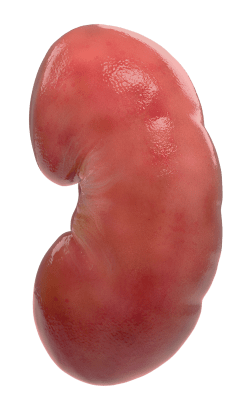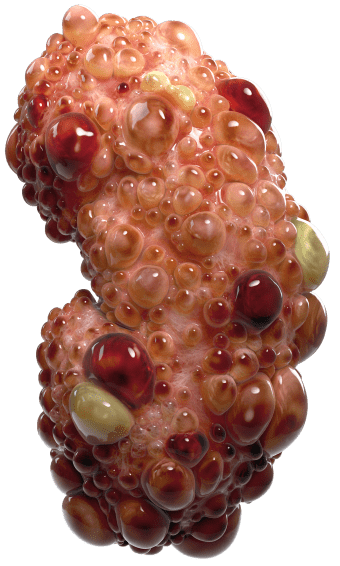BACKGROUND
"What is ADPKD?"
Autosomal dominant polycystic kidney disease, or ADPKD, is a type of polycystic kidney disease (PKD). PKD is a group of
inherited genetic diseases that cause multiple cysts, or pouches filled with fluid, to form in your kidneys.
The “AD” stands for “autosomal dominant” and has to do with how the disease is passed down from parent to child.

Each child of a parent with ADPKD has a
50% chance of inheriting the disease
Approximately 10% of people diagnosed with ADPKD
have no family history
"How does ADPKD affect the kidneys?"
Healthy kidneys remove waste products and excess liquid from your blood. They also make
hormones your body needs to control blood pressure and make new red blood cells.

Kidney

With ADPKD
With ADPKD, cysts develop and grow in the kidneys over time. These cysts will continuously grow in your kidneys,
causing the kidneys to increase in size and volume. As time passes, the growing cysts make it harder for the kidneys
to function. These growing cysts eventually lead to kidney failure, which is when your kidneys can no longer work.
About half of all people with ADPKD get to the point where their kidneys can no longer work by the age of 60.